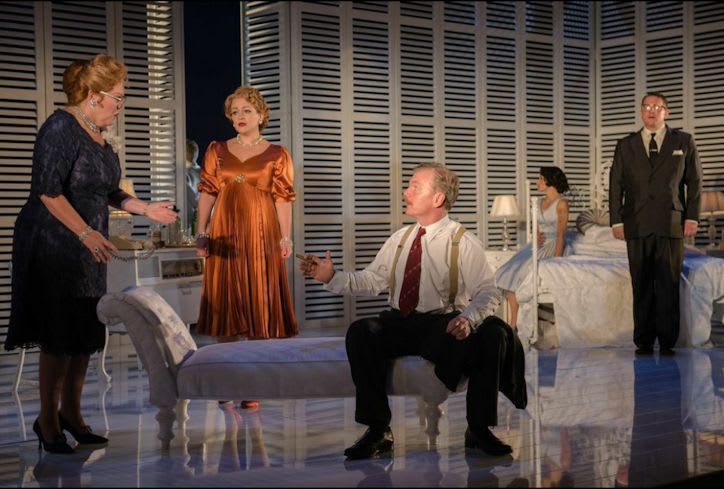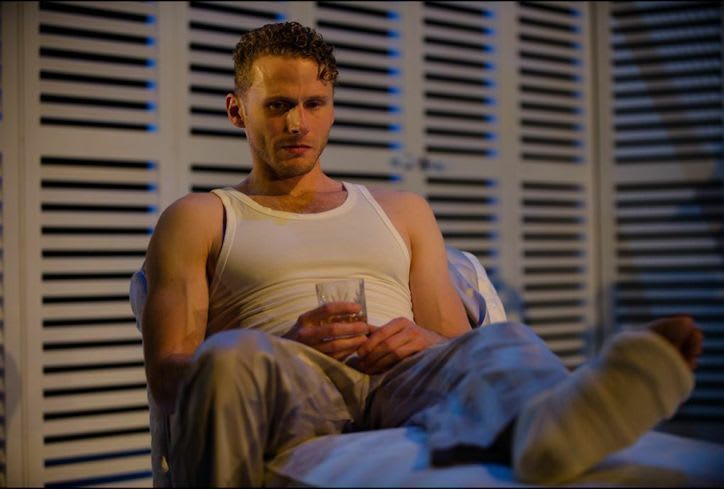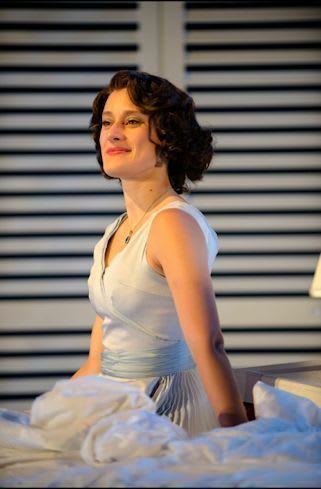In the afternoon before the (almost full house) press night of Cat on a Hot Tin Roof, a major co-production between three of the country's leading regional theatres, one of the leading actors, Daragh O'Malley who plays Big Daddy, took ill and had to go to hospital.
It's nothing serious, we are assured, but he was told not to do the show. There are no understudies—in a production running at all three venues until the end of November—so the director, James Dacre, had to go on and read in the part, not in costume but dressed in trousers and open-necked white shirt.
Dacre is no actor but the cast, it has to be said, coped well with these very difficult circumstances, particularly Charles Aitken as Brick in the central confrontation between the two characters in act II.
The big difficulty that faces anyone producing Cat is finding the right tone. Williams's psychological insights are sharp but his language is not naturalistic nor are his characters realistic. The language has a poetic texture and the characters are larger than life, so a naturalistic playing, especially in the long first scene between Brick and Maggie, can feel over-long and repetitive.
Mariah Gale is an actress I really admire (her RSC Miranda was superb) but her performance in this scene was not being quite febrile enough for us to really feel the neurotic self-absorption which drives Maggie the Cat. We could understand but not feel.
Aitken's tortured Brick, however, begins small but grows as his drink consumption increases.
Nor, for me, did Kim Criswell's Big Mamma break through the naturalism barrier when the truth of Big Daddy's condition becomes known. Until then, it was a fine naturalistic performance but at that point something bigger is needed.
Matthew Douglas and Victoria Elliott come closest to Williams's characters, Douglas's Gooper proposing to use mendacity (a key word in the play, much used by Big Daddy) to further his own ends, to obtain control of Big Daddy's plantation, and Elliott embodying Mae's total obsession with the interests of her own family and complete lack of empathy for anyone else. Two excellent performances there, particularly from Elliott.
Kieron Jechinis's Dr Baugh was all he should be but I did feel that Reverend Tooker (Sean Murray) was a tad underplayed: his focus on and constant talk of memorial windows and an air-conditioning unit for his church needed to be pointed up more, for it is yet another example of the total self-absorption of all of these characters.
Is this the result of a directorial decision? Has Dacre, possibly fearing the opposite direction which productions of Williams's plays can take, melodrama, deliberately underplayed the larger-than-life emotions and neuroses of these very damaged individuals? That's certainly what it felt like.
Mike Britton's set, three louvred walls, is a joy, a symphony in white, its lightness providing an effective foil to the darkness of the emotional situation but also, when the lights come up behind the back wall, suggesting the bars of a prison.
But I must add a big caveat. The lack of the actor playing the central role is bound to affect the actors as well as the audience and so any review must be regarded as provisional. Everything could change—and I suspect will—when O'Malley returns.


